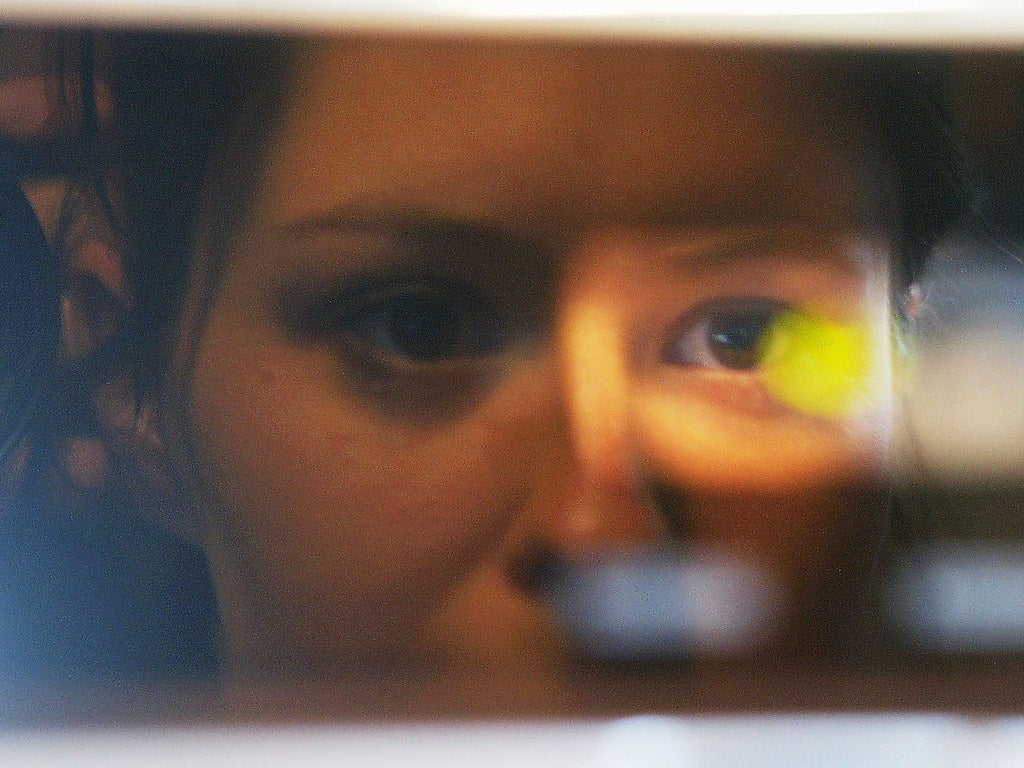Your face will soon be scanned by Tesco: How adverts are about to become discriminating
At first glance, the Sugar screen-camera might seem a harmless form of surveillance

Your support helps us to tell the story
From reproductive rights to climate change to Big Tech, The Independent is on the ground when the story is developing. Whether it's investigating the financials of Elon Musk's pro-Trump PAC or producing our latest documentary, 'The A Word', which shines a light on the American women fighting for reproductive rights, we know how important it is to parse out the facts from the messaging.
At such a critical moment in US history, we need reporters on the ground. Your donation allows us to keep sending journalists to speak to both sides of the story.
The Independent is trusted by Americans across the entire political spectrum. And unlike many other quality news outlets, we choose not to lock Americans out of our reporting and analysis with paywalls. We believe quality journalism should be available to everyone, paid for by those who can afford it.
Your support makes all the difference.When I go online, my internet server likes to offer me candid shots from the world of celebrity. Wardrobe malfunctions – a rogue nipple or a flash of knicker at a film premiere – are a regular feature on its home page, as are zany videos involving cats or weather forecasters swearing on camera.
Similarly, if I watch a football match on Sky, the advertisements seem aimed at a very stupid, loud man in his twenties, with a weakness for gambling. It is worrying to be treated as an immature moron for so much of the time, not least because there is something contagious about this cleverly marketed stupidity. One can so easily end up watching Miley Cyrus’s twerking video or having a small bet on how many goals Norwich are going to concede.
Suddenly, though, something far worse has appeared. Advertisements are about to become discriminating. Soon they could be reflecting back at you the sort of goods which are thought likely to appeal to someone of your age, gender and buying habits. We knew the internet was gathering information about shopping habits to sell more to us, and that supermarkets were playing the same trick with their loyalty cards, but now, with the friendly help of Lord Sugar, Tesco is going further.
In its petrol forecourts and shops, the supermarket chain is to introduce screens which, while they appear to be advertising to you, will in fact be scrutinising your face, assessing you and your reaction to the sales message. The data will instantly be fed back to the advertisers. According to the chief executive of the signage company Amscreen, a younger Sugar called Simon, “This could change the face of British retail.”
At first glance, the Sugar screen-camera might seem a harmless form of surveillance. After all, if you buy a book, CD or DVD online, most websites will suggest alternative titles which may interest you. In an age in which convenience is all, some might say being surrounded by large companies which watch you, analyse your taste and then cater to it will save time for the more important things in life.
They would be wrong. Like the blobbish humanoids in the Disney film Wall-E, we are waddling our way to a state of dependence on big corporations and government, preferring indolence to the effort of independence. Over the past few weeks, there has been extraordinarily little fuss about the revelation that the state is subjecting its citizens to mass surveillance. If the market allows and encourages Tesco, Lord Sugar and other powerful interested parties to peer at us through their screens, the invisible wall closes in still further.
Government and business will be happy to work together on this great project of soft control. Already, Tesco has indicated that, in a spirit of social conscience, it might use “nudge tactics” to deal with the problem of its customers’ obesity through information gathered from their loyalty cards.
Apart from the privacy issues, a society which increasingly reflects back to citizens – through advertisements, through internet search engines – a corporate view of their needs, opinions and desires will lose cohesion and strength. It is through being exposed to the surprising, to the behaviour and views of others who are different that we retain what makes us human.
Reduced to consumer units, we become more dependent, less courageous, easier to manipulate. Individuality will be eroded in the name of profit and control.
Eventually, with all those decisions being made for us, we shall indeed be left to do those “more important things in life”. Take a look at the commercials on TV today to get an idea of how that will be – sunny days, a ukulele being played, smiling faces, cute dogs, someone whistling a tune. And at the end of it all, the voice of a caring multinational reassuring us that it is there to listen to us, to take the strain, because every little helps.
Twitter: @TerenceBlacker
Join our commenting forum
Join thought-provoking conversations, follow other Independent readers and see their replies
Comments